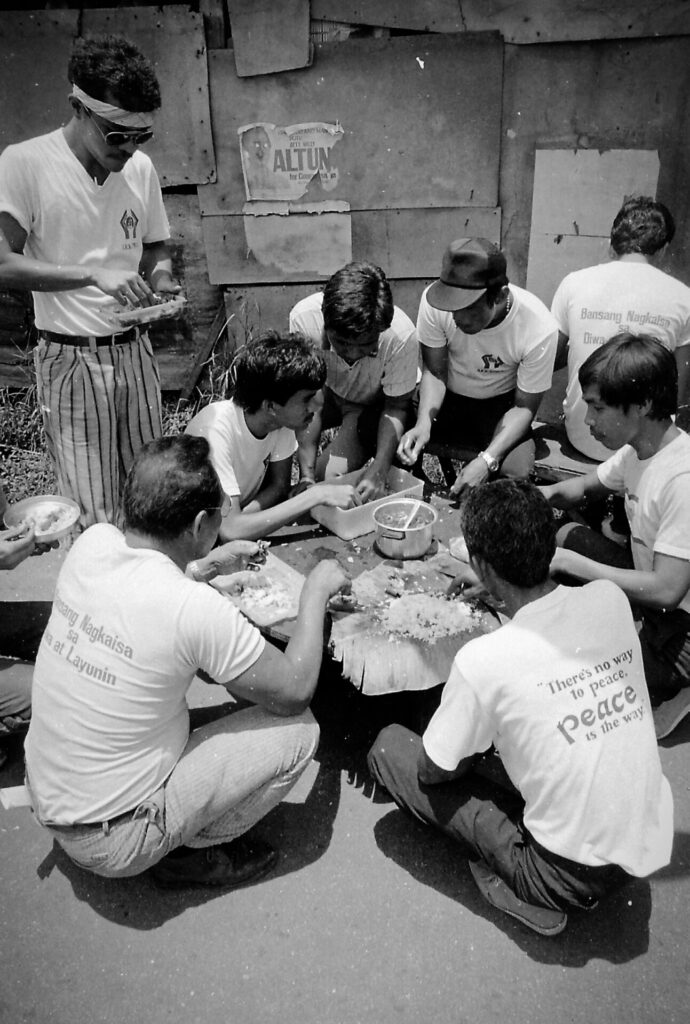by Edward M. Gerlock
Pressenza requested Edward M. Gerlock, popularly known as Ed in the NGO community, for an interview about his life, works, missions, insights, experiences, and perspectives. Below is the first part of his interview with Pressenza journalist Perfecto Caparas.
Maryknoll priest
I came to the Philippines as a priest in 1962 as a member of the Society of Maryknoll which, at the time, had undertaken a new mission in Mindanao in what is now the two provinces of Davao Del Norte and Oriental. Mindanao, in those days, was still “Marlboro Country” with unpaved roads and parishes with as many as 40-50 barrio kapilyas attached to them – oftentimes with long walks to arrive for fiestas.
The clergy at the time was almost entirely foreign. Talk was of the upcoming Vatican Council in Rome and the many possibilities of “being church.”
Farmers’ chaplain
After a few years in parish work, the bishop asked me if I would be willing to be assigned as a chaplain to a newly arrived organization of farmers – the Federation of Free Farmers (FFF) founded by Atty. Jeremias Montemayor, with a focus on being a Christian-oriented organization, thus the need for a chaplain.
I welcomed the assignment as a special grace from God and moved my residence from a parish context into a one-room at the FFF headquarters in Tagum.
“Signs of the times”
What does it mean to be a chaplain for a farmers’ organization? At first, it meant accompaniment of the farmers in the process of organization but as time went along, it seemed to have deeper implications. Did it mean simply forming friendships with the farmers and offering mass at the graduation and completion of the 5-week Leadership Formation Course (LFC) or was it something deeper, participating in the course itself and attempting to interpret the vocation of farming itself as sacred? In short, to baptize the baby at the end of the course or join in the deliberations trying to interpret the “signs of the times” – the voice of God throughout the course.
Solidarity
A case to illustrate:
In a town of Del Norte, a number of tenants on a hacienda had dutifully remitted 30% of their harvest to the “owner”. Upon examination of records, lawyers of the FFF discovered that the so-called owner had never applied for ownership of the land – after which, lawyers of the organization advised the farmers there was no need to remit the 30% – after which the “owner” had them jailed.
Compostela was still a small town with only one church and on the Sunday after the farmers were arrested, it was jampacked with people even standing outside… The parish priest arrives and sits down in the sanctuary and announces that there will not be any mass that day and there will never be any more masses as long as the farmers remain in jail. He goes on to explain the mass. What is there to celebrate when the community is divided? Is it not a celebration of being a community caring for each other?
Sitting in the front row are the “owners” who rush out of the church and go directly to Tagum to talk to the bishop. Fortunately, the bishop has been made aware of the situation and offers to help but does agree with the priest.
End of story: the farmers are released. (to be continued)
About Edward M. Gerlock
I was born on February 2, 1936, in Binghamton, New York. I have an older brother who was a priest in the diocese and recently died and a much younger sister who lives in New York. My parents were both factory workers and we went through some difficult times during my childhood. I myself began working at the age of 12 and entered Maryknoll, a missionary society the day after graduating from high school.
Ordained in June of 1962, I was assigned to the Philippines. It was the time of the Vatican Council and renewal in the church and I was delighted when the bishop asked me to be a chaplain for a rapidly growing organization of farmers, the Federation of Free Farmers. The organization grew rapidly in Mindanao.










